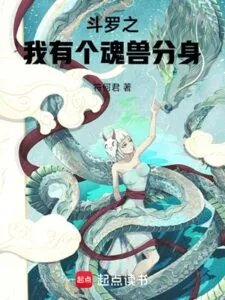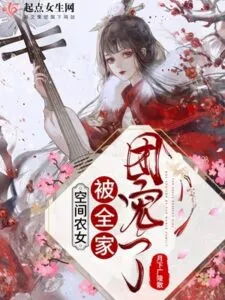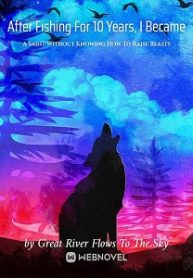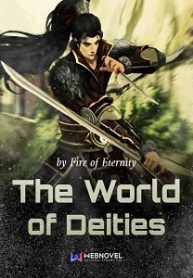Virtuous Sons: A Greco Roman Xianxia - Chapter 1.96
Chapter 1.96
The Young Griffon
By sunset we had returned.
The lands of Thracia were vast, and we had traveled them for long days and longer nights. Cultivators of our stature could have made the trip on foot in better time, Heroic cultivators like Scythas and the Scarlet Oracle’s daughter even faster than that – a day, perhaps two. When a refined man wasn’t burdened by a horse’s fragile constitution, much could be done. A mundane horse, that was.
Kronia and Atlas returned us to the southern coast that lined the Aegean Sea in a quarter of the time that it had taken them to deliver us to the Orphic House. The sun was still shining on the horizon when we caught sight of the Eos’ sails, not even a full day since we’d drank from cups of ivory and horn. Not even a full day since we’d lived, and died, and lived again through the eyes of a higher power.
This world was not what it should have been. I had known that for some time now, though I had avoided the fact. What Sol and I had seen in that place, what Scythas had shown us in the midnight field of Thracian vines, every shambling tribe up and down the River Ebros, it had all only hammered the point home.
The lands beyond the Scarlet City were dim and fallen from their prime. But this world had been golden-bright once. As we approached my family’s ship and the Heroes waving at us from the docks, I wondered if it could be again.
Kronia delivered me to the docks first. She was smaller than Sol’s charger, but I’d known from the moment I saw her prance out of her stable that she was a beast built for speed. Now, she was even more so.
Scythas looked her up and down in awe as she ran circles up and down the docks, knowing the journey was done but itching to keep moving even still. The white mare’s joy had been a warm and infectious thing ever since she’d taken off running from the Orphic House. She had always loved to run, and after having her first taste of virtue she was better at it than any mundane animal of her kind. She was swift. She was graceful.
She was mine.
“She’s awake,” the Hero said as we cantered by him for a third time, unable to believe it. “What did you do-?”
“Where did you go?” the daughter of the Scarlet Oracle asked the more pertinent question. Scythas shook himself of his wonder.
“Right. Right! What the fuck happened back there?”
“We could ask you two the same thing,” I said mildly.
“Without a word – without even a word. One moment we were all in that odeon together and the next moment the two of you were gone! Where have you been?”
Atlas arrived, the sturdy wooden docks that had taken Kronia’s weight without complaint groaning and creaking dangerously beneath the Roman and his warhorse. The charger lowered his head, steam billowing from his nostrils and out from the creases between his teeth, and glared imperiously down at the Heroic cultivators on the docks.
What the newly woken stallion lacked in speed, he more than made up for in presence and strength. He looked like he’d come charging straight out of the underworld itself. The axe wound that the gatekeeper had left in his side still bled, agitated by our sprint across the unbordered lands of Thracia – along with the hole left behind by the Roman’s own spear.
Naturally, my idiot Roman brother had the wounds to match his horse – self-inflicted of course.
“Solus,” Selene said, aghast while her eyes traced the worst of it. “You’re hurt.”
Crusted blood on both legs, the evidence of stab wounds in the backs of both knees. A puncture wound just to the left of his heart, not unlike the one that a certain bastard pirate child had inflicted upon me with a gastraphetes. Numerous ugly bruises, growing darker and uglier by the hour, inflicted by fists and boots and staffs of tightly bound vine. He looked like he had just come from exactly where we’d just come from. My complete lack of wounds by contrast likely made it even more startling.
“The two of you have seen better days as well,” Sol observed.
“What happened?” Scythas asked him, and I could only guess as to the monsters responsible for the damage that he was picturing in his head.
Sol cleared his throat and spat a mouthful of blood onto the dock beside his horse. “We spoke to Orpheus.”
“Orpheus the dead man?”
“Both of you?” Selene asked. The question after that she left implied – why was I in fine condition, while the Roman here was mangled?
“We took part in the Augur’s mystery rites,” I explained. I shrugged at their dubious looks. “The gatekeepers gave us cups of ivory or horn, each of them filled with a mixture of milk and honey with psychoactive properties. The standard fare for any cult’s initiation, just… a bit more potent.”
Sol snorted. It was admittedly an understatement.
Scythas looked the Roman pointedly up and down. “And then?”
During the ride back to the southern coast where we’d docked our ship, Sol and I had discussed many things. The first among them had been what exactly each of us had seen after imbibing our cups of milk and honey. We’d realized quickly that each of us had suffered the same exact visions of the late and future Zagreus’ life. It wasn’t until afterwards that our experiences had diverged. For me, it had been the delusions of cousins that could have been. For Sol, it had been something entirely different.
The Roman grimaced, his eyes distant as he recalled it. “There are greater and lesser mysteries. Corpses of heroes and corpses of gods. I don’t know if the subject of the Orphic faith stands among the greats, but he was far more than just a hero.”
The Scarlet Oracle’s daughter blinked. “He?”
“You met him,” Scythas said wonderingly. Making entirely the wrong connection. “You remember him. His identity, or – his appearance, maybe? His name? Can you remember his name?”
“I remember asking for it,” Sol said, irritated at the memory of it. “He said it didn’t matter.”
“You spoke to him?” Selene asked, stepping forward excitedly and reaching up to grip his shins. Atlas snorted warningly, but the stallion didn’t stop her. “And he responded?”
“You spoke to a dead god,” Scythas said, making certain of it. Had it been a god? Had any of it been real at all? Or had we seen what we’d wanted to see, been told what we wanted to be told, all within the boundaries of our milk and honey delusion? I still wasn’t sure.
Sol sighed. “Maybe. But it was brief, and it ended in disagreement.”
I rolled my eyes as another absurdity took shape in Scythas’ mind.
Was misfortune alone to blame?
That had been my first instinct. It had been my first conclusion, the one that I found easiest to accept. Every cultivator that coveted the heights knew the Fates were against them, if not today then tomorrow or the day after that. It was easy to blame my circumstances on the women that toiled at heaven’s loom. It made things simple.
But if I accepted that, then I had to accept that everything was their doing. I had to give to them my all of my joys as well as my sorrows. I had to credit them with my triumphs along with my tragedies. If I wanted to hide behind their skirts and blame my discontent on their destiny threads, I had to surrender all that I was, all that I had been, and all that I would ever be to the Fates.
I refused to give myself to them. I’d die before I did.
Who to blame, then? Blame my father, who had suffered under a Tyrant’s yoke in his youth just as I had? Blame my cousins, who had shed blood and tears trying save me from my own discontent? Blame my aunts and uncles, blame the elders, blame the Rosy Dawn and Burning Dusk, and Raging Heaven besides?
Blame the Father. Blame the bisected corpse of the fallen sun god. Blame the world.
Ridiculous.
The sea dogs that sailed the Eos took a break from their rowing sometime after the moon passed its zenith. The stars above the Aegean Sea lit the waves and guided our way, while the unseen hands of my intent steadily worked the ship’s oars. Our sailors sprawled across their benches and curled up with their backs to the ship’s rails, dropping off into dreams as soon as they found a comfortable place. They’d run themselves ragged, the memory of their liberation still fresh enough that they were eager to please us.
Kronia and Atlas were sound asleep at the aft deck, their exhalations like campfire heat on our backs. We’d been forced to shift benches and move men to accommodate them, but we had done it and the virtuous beasts had complied with the journey. They were fatigued enough from their journey and awakening that I imagined they could have fallen asleep in that sack filled with snakes that Sol had threatened the stallion with days ago.
Sol sat cross-legged at the front of the ship, by her wood-carved figurehead. Scythas sat facing the Roman on the bench just beside him. They were conversing quietly, the Hero of the Scything Squall shaking his head or gesturing shallowly with his hands.
It had been a necessity to seat the Roman opposite the horses, as we’d discovered when Atlas stepped off the dock with Sol on his back and nearly capsized the ship. The issue of the beasts was self-evident, Atlas weighing as much as ten men all on his own, but the Roman had been a surprise. Whether it was his advancement or his brush with deviation that was to blame, he walked now with a weight that he hadn’t carried before. Scythas and Selene had both had their theories as to the cause, but Sol hadn’t volunteered the likely cause. I hadn’t forced the issue for him.
It would have hardly been fair, seeing as I had no intention of volunteering my own tribulation either.
I leaned my head back against the Eos’ mast. On the other side of it, the daughter of the Oracle hummed a quiet tune under her breath. I contemplated the lunar glory.
“Honey and wine,” I murmured.
“And two horses, besides,” she replied. “I’d say this first venture was a success.”
“Perhaps.”
Returning to the Eos had been the correct choice in the end. Our Heroic companions had chosen the same course of action, though they’d been flung nearly as far afield as the Orphic House had been, in an entirely different cardinal direction. Lost in chthonic hives, wandering the underworld in search of a true way out – a gate of horn instead of ivory. We’d traded stories while the Eos pulled away from the Thracian coast and the sun fell out of the sky, interjecting with the occasional jab or disbelieving demand for further detail.
When pressed, Sol had presented a single cup of golden wine from the depths of his shadow. A gift from the faceless man that he had spoken to while I was conversing with my familial delusions. It seemed that even while his legion had dragged him down into the dark, he’d had the presence of mind to snatch it as he fell.
To back their own claims, Selene had pulled an honest to god bee hive from a fold in her sunray silks, marred by teeth marks and oozing honey. Honey to heal the chthonic stings, and clear their psychoactive venom from the Hero’s veins.
But why had she eaten it?
“Perhaps?” the daughter of the Oracle asked, puzzled, and tilted her head to look at me from the other side of the ship’s mast. “What about it was a failure?”
She’d lied to us when she told her story. I didn’t know how, or why, but I knew that she had. I could feel it, in the whispered echoes of her heart. Something vaguely overheard, in the same way I had overheard with my Sophic sense the whispers of Socrates’ rhetoric while he thrashed Sol and I in his cave.
A cultivator could refine their senses the further they advanced and open themselves up to novel ones in turn. That did not make us omnipotent, though. We could detect another cultivator’s pneuma with our Civic sense, gauge their relative standing so long as it was not too far above our own, but only if that other cultivator chose to show their strength to the world. To speak it, rather than hold it in.
It was the same for the Sophic sense, the Philosopher’s perception that allowed them to detect and respond to the rhetoric of their peers. When I invoked a principle or declared a truth for all the world to hear, it meant I wanted to be heard. Anyone with an ear for rhetoric would hear it if they wanted to. Socrates’s invocation of truths in that cave hadn’t been presented to us in this way. He’d kept it to himself. He’d made us work to hear even a trace of it. It made his rhetoric nearly impossible to directly counteract – it was the difference between a whisper and a shout.
As it happened, this held true for Heroes as well.
I could feel the whispers of Selene and Scythas’ hearts in a way that I couldn’t any other soul on the ship. There was feeling there that I could perceive, like the faintest tapping on my ribs. Too quiet and tightly guarded to fully understand, impossible to put into words. If I had to compare it to something, it was like the flames behind their eyes. Ever burning, but not hot enough to feel the heat. Not bright enough to blind.
But I could feel the flames flicker when their hearts were provoked, and that was enough to guess. Selene had lied, through omission if nothing else, and so had Scythas. Which portions of their story, I couldn’t be sure. But I had felt the flames flicker. I had listened, straining as hard as I could with the new perception that Orpheus had awoken in me, and I had felt their momentary hesitance.
“I’ve learned more in these five days than I did any given year at the Rosy Dawn, studying under the wisest men the Scarlet City could provide me,” I finally said. “I’ve seen sights I had only heard stories of before. I’ve meet men and women as different from me as I am from Sol, and I’ve seen for myself the disparity in our cultures. Weeks like these are why I left my home. Experiences like these are what I knew from the beginning that I desired beyond all else. Yet here I am at the end of it, and I feel emptier than I did before. How? Why?”
“You think too much.”
I blinked. “Excuse me?”
Selene shrugged, brushed golden hair out of her eyes and shifting her sunset veil away from her face. Glancing back at me while I glanced back at her, she smiled faintly.
“Thracia is a beautiful nation, isn’t it?”
I raised an eyebrow. “Which portion of it?”
“Its yellow mountain ranges and the lush valleys between. Its beasts – the bears and the snuffling pigs that lumber through its undergrowths, and the foxes and hopping goats that wander its heights. The rivers that run through it from the Aegean to its furthest unknown boundaries. And the snow. The snow that coats every thistle and pine once you’ve gone north far enough. A true northern winter, not the faint approximation we feel in our cities. Wasn’t it all incredible to see?”
I considered that for a long moment. It was a struggle, a titanic effort, to separate the sights from the disappointment that had tainted them in my memory. But when I did…
“It was,” I realized. “It was beautiful. All of it.”
And I had ruined it for myself. Not Scythas with his stories of the late Bakkhos. Not the people of Thracia or the gatekeepers of the Orphic House with their crude irreverence. Me.
“I haven’t left the city of Olympia in years, and when I did I never went far,” the daughter of the Oracle said knowingly. “This is all new to me. Every sight and sound seems more vibrant, somehow. Lighter-“
“Golden-bright,” I whispered.
“Exactly.” She nodded happily. “You’ve seen things in five days that most people would give their arms and legs to experience, and you’ve come out of it with a horse that any cultivator would pay a fortune for. I don’t know what it is you thought you’d find out here, Griffon, but you’re letting it blind you to what you did. You do that a lot, I think.”
I scoffed. “You’ve only known me for a week.”
“I’ve known you longer than that,” she disagreed. “Solus speaks about you often.”
The moon was bright tonight.
“And while I may not have Scythas’ ear, I do pay attention to the gossip on the mountain. You make waves wherever you go, it seems. Why? Why provoke people the way that you do?”
I shrugged. “It amuses me.”
To my shock and my rage, I felt my own heart flicker. I hadn’t spoken a lie. Ugly, treacherous heart, I hadn’t spoken a lie.
“That isn’t all,” Selene murmured.
My lip lifted from my teeth.
“You have high expectations. I understand that. And I also believe, from what Solus has told me and what I’ve observed of your actions in our short time together, that you want people to meet your expectations. You want to help them exceed them.”
“Junior sister, tell me more.”
“Gladly, senior brother,” she said, unbothered by my sarcasm. “You are an arrogant man that thinks the world of himself, because you have yet to be proven wrong in any way that matters.”
“Ho, I see.”
“Unfortunately, the more that you are proven right, the more that you resent the world for failing to prove you wrong. Because you know the way you act is cruel – like the world and all its people are made of iron. Like you can temper their weak points if you only apply enough heat.”
I stood.
“It’s admirable that you want them to be better,” she said, remaining seated with her back to the mast. She looked up at me earnestly, the scarlet lights behind her eyes burning brighter as she expressed the truth of it with her heart. “But not everyone is made of iron, Griffon. For some people, the fire only burns.”
I turned away from her and walked up the deck, towards Sol and the Hero of the Scything Squall. As I did, the Oracle’s daughter offered me one last piece of advice.
“Try being honest!”














